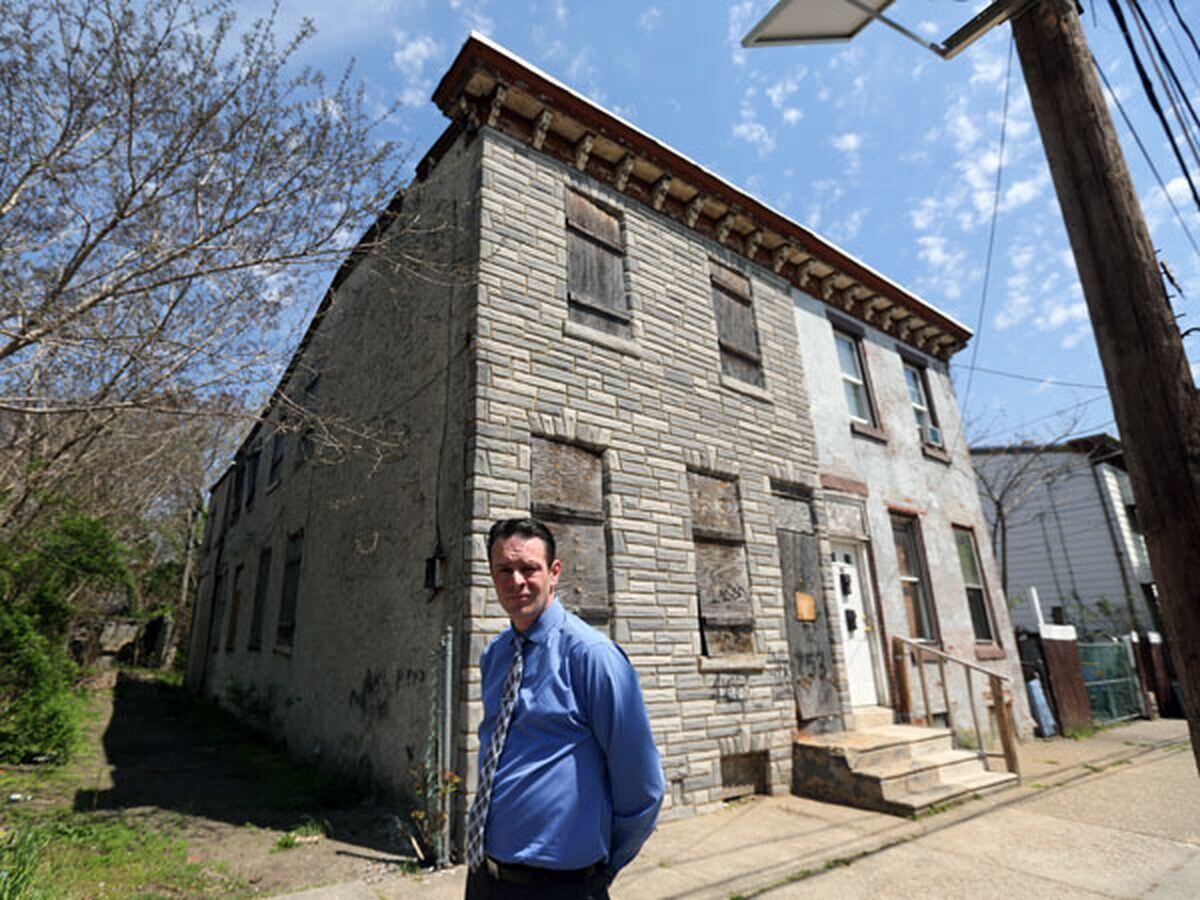
A yearslong effort by a local activist to persuade the state of New Jersey to recognize a Camden house with ties to the Rev. Dr. Martin Luther King Jr. as a historic site has hit a roadblock, as officials declared the property ineligible.
Activist Patrick Duff contended that King lived in the house at 753 Walnut St. while he was a graduate student at the now-closed Crozer Theological Seminary in Upland, Delaware County.
The house has been vacant for decades and was marked for possible demolition in 2016. That year, U.S. Rep John Lewis (D., Ga.), a civil rights icon, visited Camden and called the house a “piece of historic real estate that must be saved for generations yet unborn.” City officials and state lawmakers also urged the New Jersey Historic Preservation Office to protect the property.
Placing the site on the New Jersey Register of Historic Places would make it eligible for grants and prevent it from being razed. Duff filed a preliminary application with the state in 2015 to determine whether the property was eligible for listing on the state and national registers.
On Friday, state officials wrote Duff a letter saying that the house did not meet the criteria. “Please do not misunderstand this finding. It does not mean that Dr. King was never present at 753 Walnut St.," wrote Ray Bukowski, assistant commissioner of the Department of Environmental Protection.
“It does mean that Dr. King neither lived nor resided there,” the letter, dated Jan. 31, says, adding that King’s visits there "were just that: visits.”
In an interview Sunday, Duff said he would appeal the state’s determination to the National Park Service. He filed a lawsuit last week against the DEP, seeking records about the Historic Preservation Office’s deliberations.
Duff said he wasn’t surprised by the outcome. “Even when I produced dozens of documents, several eyewitnesses,” it still wasn’t enough for the state, the Haddon Heights resident said.
King’s time in Camden had a significant impact on his life, Duff argued, in part because that’s where he was living when he and a few friends were refused service at a bar in Maple Shade in June 1950. When King and his friends asked for ginger ale, the pub owner walked outside and fired his pistol in the air a few times. It was King’s first sit-in, Duff says.
Walter R. McCall, a fellow seminary student, filed a police report — which mentioned King’s name and listed 753 Walnut St. as his address. The owner was arrested, but prosecutors dropped the charges after witnesses failed to testify before a grand jury.
Duff argued that the episode helped shape King’s activism. State officials said in the letter that they found little evidence to support that conclusion.
They acknowledged that King spent time with the family of Benjamin and Ella Hunt, who bought the house in 1945. But officials said the evidence showed that King lived on campus during his three years at Crozer — not in Camden. The “Old Main” building at Crozer is among the eight properties in the country listed on the National Register of Historic Places with strong associations to King, the letter says.
It adds that the national and state registers do not “permit the eligibility of all properties that were somehow associated with an important historic figure.”
The rowhouse, now owned by Jeanette Lily Hunt, remains vacant and in disrepair. The City of Camden received $229,000 in federal funds to renovate the building, but in 2018 city officials diverted the money to the fire department without explanation.
"House" - Google News
February 03, 2020 at 04:20AM
https://ift.tt/36UFHdI
New Jersey won’t recognize Camden house with ties to Martin Luther King Jr. as historic site - The Philadelphia Inquirer
"House" - Google News
https://ift.tt/2q5ay8k
Shoes Man Tutorial
Pos News Update
Meme Update
Korean Entertainment News
Japan News Update
Bagikan Berita Ini














0 Response to "New Jersey won’t recognize Camden house with ties to Martin Luther King Jr. as historic site - The Philadelphia Inquirer"
Post a Comment